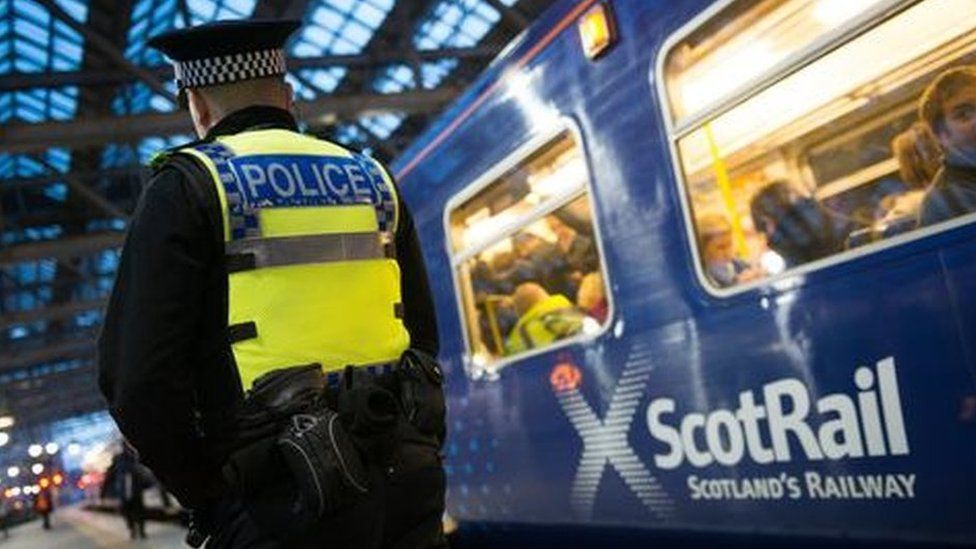Railway policing to be run by committee as merger plans ditched
-
Published

Railway policing in Scotland is to be governed by a new committee, under the latest Scottish government plans.
The fresh proposals mark the end of the government's controversial bid to merge British Transport Police with Police Scotland.
The issue is due to be discussed by the Scottish Police Authority later.
The Scottish government previously said it wanted to absorb the force - which operates on the railway system - into Police Scotland.
A highly contentious plan, it was supposed to happen earlier this year, but has been delayed by ministers.
MSPs passed legislation to absorb the functions of BTP north of the border into Police Scotland in 2017, despite opposition from the Conservatives, Labour and the Lib Dems.
Officers' concerns
The Scottish government put the merger on hold after concerns from officers and unions.
In August last year, Justice Secretary Humza Yousaf said a review would be carried out "to explore further options".
In the months that followed, ministers said they were pursuing a medium-term alternative to the stalled merger, which Mr Yousaf said continued to be a "long-term goal".
A report from the public spending watchdog criticised the lack of a business case for the merger, while rail operators and transport police warned of a loss of specialist skills.
Now a new committee is being proposed with members drawn from the Scottish Police Authority and the transport police board.
If ministers in Edinburgh and Westminster agree, it could begin monitoring transport policing in the autumn.
The committee's responsibilities would include:
- Reviewing and reporting on the planning and performance of railway policing in Scotland
- Reviewing and reporting on the cooperation and joint working of the BTP and Police Scotland
- Scrutinising BTP's public and stakeholder engagement work in Scotland.
It is proposed that the new committee would comprise two members of the BTP Board and two members of the SPA Board.
The committee would meet quarterly at venues in Scotland.
Papers would be publically available in advance and meetings would be open to the public, except where there were "stated and justifiable reasons for business being considered in private".
-
-
Published18 December 2018
-
-
-
Published27 August 2018
-
-
-
Published28 April 2017
-